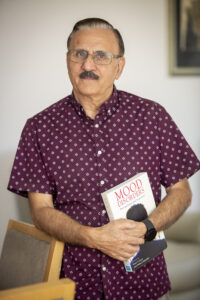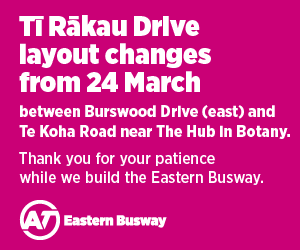
A group of overseas doctors desperately looking for and struggling with employment in New Zealand is calling for urgent changes to this country’s health care system.
East Auckland psychiatrist Dr Anil Channa is among the people asking for action to address issues he says are serious.
Organisation for Economic Cooperation and Development (OECD) data showed this country’s health care system relies heavily on international medical graduates (IMG).
With the workforce shortage and Covid-19 making the situation even more difficult, it’s easy to assume the Government would want to employ and keep IMGs in a health care system straining under immense pressure.
For medical practitioners with experience in a comparable health system, the process is straightforward.
But for other IMG, the pathway for registration and employment is notoriously difficult.
The biggest obstacle for an IMG is getting a PGY1 position (intern position with an accredited pre-vocational medical training provider).
Dr Curtis Walker, chairman of the Medical Council (MC) says the number of PGY1 roles are limited and “priority is given to graduates from NZ and Australian medical schools”.
85 doctors who have passed the exam over the past 5 years have not gained employment.
An international doctor needs to gain a PGY1 position within five years to gain registration, or re-sit exams.
Channa, who lives in Flat Bush, has been working in New Zealand for 26 years and says over the last three-to-four years DHBs “have not been giving jobs to people that have passed the NZREX”.
NZREX refers to doctors who have sat and passed the New Zealand Registration Examination.
“There are a couple of them … their five years have gone and they’ve missed their chance.
“And why they are not getting them (PGY1s) is because the DHBs tell them that ‘we are first taking our own local graduates.’
“What is the point of subjecting people to this exam, which costs $10,000 and takes one-two years, and then, at the end of the journey, you are told ‘sorry, there’s no job for you?’”
Channa is lobbying, along with United Voice, on behalf of the NZREX doctors.
So far they’ve sent a letter to the Ministry of Health (MoH) and contacted various sources.
“We sent a request for at least one-two extra jobs to be made available per DHB but we were told that DHBs already have enough PGY1 doctors,” NZREX doctors say.
“Why then is the MCNZ conducting these exams if there are no opportunities for us to practice here?”
Tamryn Lindeboom, a South African doctor who lives in the South Island, qualified in 2012 with a Bachelor of Medicine and Bachelor of Surgery.
She has nine months’ of ICU experience.
After long contemplation, she and her family moved to New Zealand.
“I knew I would have to write exams on arrival to NZ to prove my clinical competence, but I was not aware that following on from that was a pathway to effectively nowhere,” she says.
“In short, people around me in South Africa joked about New Zealand being the place doctors go to drive taxis but only once arriving here did I start taking that more to heart.”
Since completing the NZREX exam in June 2021, she’s applied to every DHB in the country for a PGY1 post.
“I keep getting told there are no vacancies.”
Another NZREX doctor, who will remain anonymous, moved to one of the GCC countries, finished a four-year medical specialty training in JCI (Joint Commission International) government hospital and worked as a specialist and critical care physician. She has ten years of experience in the medical world.
Additionally, she has a Membership of Royal College in the UK equivalent to ST4 (Specialty Trainee Year 4) in the National Health Service (NHS) in the UK. However, because it isn’t a consultant certification and she was from a non-comparable health care system, she was not granted entrance into the vocational specialist registration pathway (VOC3).
“There’s no middle pathway in NZ,” she says. “You either go from the beginning or as a consultant.”
She sat in the NZREX exam in June 2021. Since then, she has not been able to find a PGY1 position. While she is waiting, she is studying for her Master’s.
“When I was hearing about the demand in the ICU, and I was coming from a hospital with experience in critical care, I would feel a pain because I couldn’t help.”
Another struggling NZREX doctor, who will also remain anonymous, permanently moved to NZ in 2019 from a country in South Asia. She has eight years of teaching and clinical experience. She took the NZREX exam, and since then has been trying to gain employment.
“I knew there would be some challenges,” she says. “But it is more discouraging than I thought it would be.”
Many NZREX doctors, she says, are doing jobs such as clinical or GP assistants.
An MoH spokesperson told the Times “existing workforce shortages make it difficult for DHBs, and other settings like general practice, to provide the necessary supervision for additional PGY1 placements for all NZREX doctors”.
Dr Channa and Lindeboom, among others, are advocating for the return of the GP pathway, which allows experienced overseas doctors to be supervised in general practice.
The ministry says general practice capacity to provide supervision decreased after a requirement all New Zealand medical graduates complete a community-based placement as part of their pre-vocational training was introduced.
“Without increased GP capacity, it is not a viable option to reintroduce at this time.”
A report revealed on March 17 showed that half of NZ’s GPs will be retired by 2032. An extra 100 GPs need to be trained each year to cover the loss.
Charlotte Chambers, the director of policy and research for Association of Salaried Medical Specialists (ASMS), says that ASMS are concerned that there are barriers for IMGs seeking to work in NZ. “It is an issue we are currently researching,” Chamber says.
The DHBs, she says, are not adequately funded. “Among 15 comparable countries, NZ ranks second-to-bottom, both on per capita spending and total spending per GDP. NZ would need to add $4.5 billion to current funding levels to match the median country spend per GPD of Norway. This is the scale of funding needed to address entrenched staff shortages and unmet health need,” she says.
“Funding of DHBs continues to be well short of what is needed to run a properly functioning medical service.”
A group of 50-60 NZREX doctors, including Channa, regularly meet up to discuss their stories, what can be done and bringing awareness to their cause. They’d had meetings with MPs Shane Reti and Brooke van Velden and are due to meet with Ethnic Affairs MP Vanushi Walters.
“We are happy to do anything,” one NZREX doctor says.
“We are willing and flexible. We are hoping things might change for us.”









